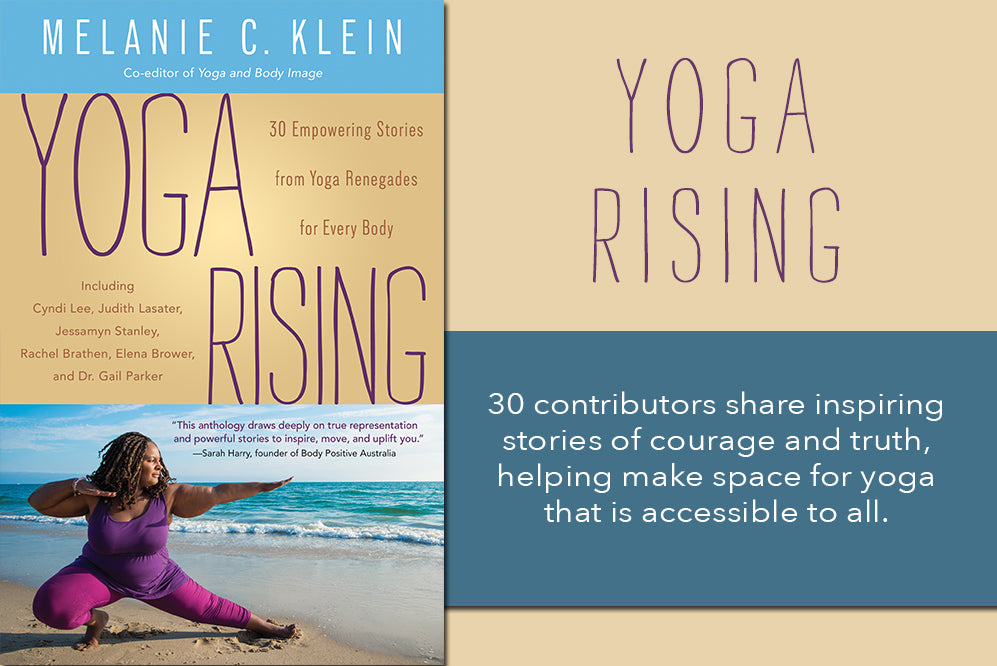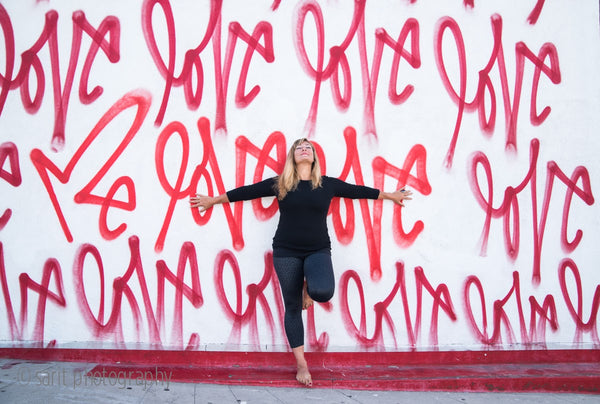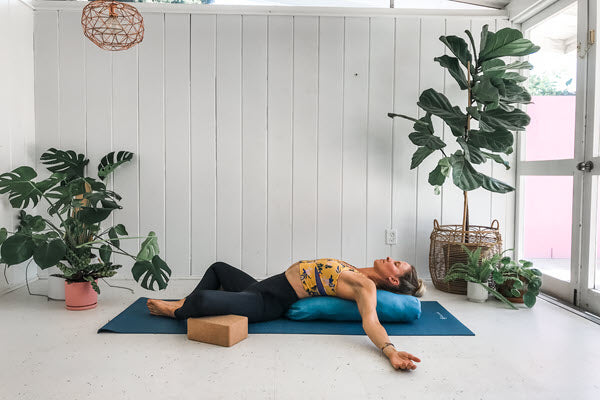Saying Goodbye to the Inner Critic

by: Melissa Mercedes
This is an excerpt from the new book “Yoga Rising: 30 Empowering Stories from Yoga Renegades for Every Body”
There is something daunting about not feeling comfortable in your own body and skin. Whether this discomfort stems from a disruption in the attachment process as an infant or dissatisfaction with body weight, shape, or size due to mass consumption of media portrayals of what constitutes the “perfect body” is important. Equally or perhaps even more important, though, is how we choose to respond to the situation. Body image is defined as one’s cognitive, emotional, and behavioral reactions to body weight and shape.1 Research suggests that body image dissatisfaction is learned not only through the media’s portrayal of what is acceptable, but also through familial factors (e.g., teasing by family members, family’s emphasis on weight) and social comparisons. Social contextual factors such as Western culture’s emphasis on the ultrathin body and peer influence informs the construction of an unrealistic ideal of what is beautiful. Our cultural ideal of thinness seems to be, in part, predicated on the waif-thin appearance popularized in the 1990s.
1.Tiggeman and Lynch, “Body Appreciation in Adult Women: Relationships with Age and Body Satisfaction,” Elsevier, 2001. https://www.6minutes.com.au /getmedia/78426d7b-f84e-46af-bb17-de4e6c51d6a9/body-image-paper.aspx.
Since the 1960s, the ideal female shape has become smaller and thinner. Hence, Western society is bombarded by a body image ideal that is, in large part, overly unrealistic and nearly impossible to attain. The influence of media, coupled with family and peer influences, is the backdrop for the stories we continuously tell ourselves, often subconsciously, about our body shape and weight in the context of what is attractive. Unfortunately, these stories have no age boundaries and can traverse a lifetime, well into our forties, fifties, and beyond.
As a teenager in high school, I was introduced to the modeling industry. Here, I was exposed to a different perspective on food and body image. I learned how to design low-calorie meals and successfully skip meals. I was convinced that I needed to lose ten to fifteen pounds, because the camera apparently adds this much weight to your body in photographs. That message ran deep. It was during this time that I began to cultivate and nurture perfectionistic tendencies linked to a persistent delusion of an ideal body put forth by the media and based on social comparisons. I became captivated by the media’s portrayal of the “healthy” female body, and I blindly followed a path marked by an unhealthy relationship to food and body. I became addicted to a story: I am not skinny enough, and until I achieve a certain weight and body mass index, I will not be worthy. Eventually my life became extremely narrow as I obsessed over calories and the types of food I ate. I became stuck on the notion that I had to make drastic changes to my body if I was going to be successful in the industry. What I did not understand at the time was that I was fighting an uphill battle if this was the intended outcome. Why? Because it was not that I was “overweight,” but rather, I had a body shape and size that was different from the media’s ideal. I am of Mexican, German, and Aztec decent—I do not inhabit the tall, slender body frame that was sought by the modeling industry. Being an unenlightened consumer of the mass media and trained to compare myself to peers, I became stuck. To be successful in the industry, I would have to step into a completely different body. Over time, I began to develop deep-rooted thoughts that I was unacceptable or unworthy in some way. To appease these thoughts, I engaged in unhealthy eating behaviors. The ramifications of this new perspective was reflected in my dis-ease in the body. I spent my teenage years and early twenties learning how to avoid the experience of fully inhabiting my body, missing the opportunity to dwell in the place where we go to connect to our inner guidance, strength, and self-love. I became habituated to avoiding the discomfort associated with a delusional body image, and I resisted any opportunity to experience what it felt like to be in my own skin.
Not surprising, no matter how much weight I lost, the shape and height of my body remained the same. More importantly, the weight loss failed to bring me the happiness, self-love, and acceptance that, according to the billboards, magazines, and television commercials, comes with drastic weight loss and attaining the ideal weight. While the seeds of dissatisfaction with body image were planted during my teenage years, it was in my twenties when those seeds manifested into a personal medical condition that could not be ignored. This was the wake-up call that ignited the fire within to start looking at my unhealthy relationship with food and body and the desire to find that one diet or trick that would “fix” my body.
I relied primarily on Eastern traditions to support my healing process, which marks the beginning of a spiritual journey that continues to offer support, nurturance, and guidance both personally and professionally. I saw the meditation practice as a great complement to my yoga practice. These Eastern traditions provided the opportunity to learn how to watch thoughts, without becoming entangled or attached, and to create space from the thoughts as you gently guide your way back to the present moment without judgment, evaluation, or criticism.
The movement associated with breath in the yoga asana practice provided a unique platform upon which to cultivate and strengthen mindfulness skills. Through the asana practice, I began to notice that there is always a choice point of staying on my mat despite the experience of uncomfortable mental phenomenon and to draw on the breath as a focal point. The asana practice also allowed me to engage in exposure rather than avoidance. From this place, I am now able to help guide others toward meaningful lives filled with love and acceptance and less suffering. For this, I am deeply grateful.
Excerpts from Yoga Rising by Melanie C Klein © 2018. Used by permission from Llewellyn Worldwide, Ltd., www.llewellyn.com
Melissa Mercedes, PhD, is a licensed clinical psychologist and conducts clinical research at the VA Greater Los Angeles and San Diego Healthcare Systems. She has extensive experience in the use of mind-body therapies for trauma, depression, and anxiety in women, and is an advocate for integrative approaches to promote emotional and physical well-being.
Also in Blog

Body Peace & Personal Empowerment

Yoga for Swimmers: Poses for Strength and Mobility

